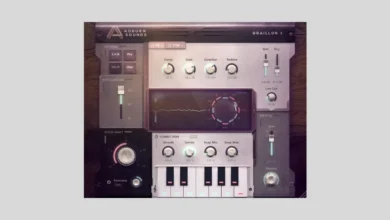A Practical Guide to Overcoming Pornography Addiction

Introduction
Pornography addiction is a challenge faced by countless individuals worldwide, yet few openly discuss it due to stigma and shame. If you’re struggling, you’re not alone. Breaking free from this habit may feel overwhelming at first, but with support, self-awareness, and actionable strategies, it’s absolutely achievable.
This guide explores what pornography addiction is, its impact, and practical steps to help you overcome it. By the end, you’ll have a clearer understanding of how to regain control and move toward a healthier, more fulfilling life.
What is Pornography Addiction?
Pornography addiction refers to compulsive consumption of explicit content despite its negative impact on one’s emotional, mental, or physical well-being. The addiction often leads to heightened guilt, distorted perceptions of intimacy, and disruptions in daily life.
Key Signs of Pornography Addiction
- Loss of Control: Consistently failing to limit or stop the behavior.
- Escalating Consumption: Needing increasingly stimulating material to feel the same effects.
- Neglecting Responsibilities: Skipping work, losing focus, or neglecting relationships due to excessive usage.
- Negative Emotions: Feeling guilty, ashamed, or anxious after consumption but unable to stop.
Acknowledging the problem is the first step toward healing. If any of these signs resonate with you, it’s time to take action.
The Impact of Pornography Addiction
Pornography addiction impacts individuals on various levels, including emotional health, relationships, and self-esteem. Here are some of the most common effects:
Emotional and Mental Well-being
Excessive pornography use can contribute to feelings of shame, depression, and anxiety, creating a vicious cycle. Over time, it can rewire the brain’s reward system by desensitizing users to natural sources of pleasure.
Strained Relationships
Porn addiction often disrupts intimacy and creates unrealistic expectations of partners. This can lead to mistrust, dissatisfaction, and communication breakdowns in relationships.
Reduced Productivity
Spending hours engaging in this behavior may take away time from work, hobbies, or other meaningful activities. Many individuals struggle with procrastination, as attention shifts away from priorities.
Recognizing how pornography addiction affects you personally ensures you have a strong “why” when starting the recovery process.
Steps to Overcoming Pornography Addiction
1. Acknowledge the Problem Without Shame
Healing begins with self-awareness. Understand that addiction doesn’t define your worth. Forgive yourself for past mistakes and remind yourself that seeking help is a sign of strength, not weakness.
2. Identify Triggers
Triggers are situations, emotions, or environments that lead to pornography consumption. Common triggers include stress, loneliness, or boredom. Keep a journal to note when urges arise, and observe patterns over time.
Actionable Tip:
Each time you feel an urge, write down:
- What you’re feeling (e.g., stressed, tired).
- Where you are (e.g., alone at home, on your phone).
This process helps you identify and start managing your triggers effectively.
3. Set Clear Goals
Define specific, measurable goals like reducing screen time or going 7 days without pornography. Focus on one step at a time rather than aiming for perfection overnight.
Actionable Tip:
Visualize your success. Write down how overcoming pornography addiction will improve your life, such as building a stronger relationship with your partner or feeling more confident.
4. Limit Access to Temptations
Reduce temptation by installing content blockers on your devices or keeping electronics out of private spaces. Creating barriers between you and harmful content increases your chances of success.
Practical Tools to Try:
- Apps/Software like Covenant Eyes or BlockSite allow users to restrict access to explicit websites.
- Accountability Partners can check in and help reinforce boundaries.
5. Seek Professional Support
Therapists and counselors can provide tailored strategies and a safe, judgment-free environment to discuss your struggles. Cognitive-behavioral therapy (CBT), in particular, has shown success in treating addictions.
Consider Alternative Support Systems:
- Group Therapy or 12-step recovery programs offer social support and camaraderie.
- Online Forums (such as NoFap) have thriving communities for mutual guidance.
6. Develop Healthy Coping Mechanisms
Replace old habits by creating new, healthier routines. Engage in activities that keep your mind and body occupied, especially during vulnerable moments.
Suggested Alternatives:
- Exercise to boost endorphins and reduce anxiety.
- Take up hobbies or skills like painting, cooking, or playing an instrument.
- Practice mindfulness or meditation to manage stress and negative emotions.
7. Celebrate Small Wins
Progress is built one step at a time. Celebrate milestones, no matter how small they seem, to keep yourself motivated.
Actionable Tip:
Use a tracker to monitor progress. For example, maintain a streak of days without pornography consumption and reward yourself (with something positive) for reaching milestones.
Building a Supportive Environment
Overcoming pornography addiction often requires community or partner support. Share your goals with trusted friends or loved ones who can encourage and hold you accountable during tough days.
- Be Honest With Your Partner
If you’re in a relationship, try explaining your goals openly and show your willingness to improve. Approach this topic gently—not as an excuse for past behavior, but as a commitment to change.
- Engage With Support Groups
You don’t have to face this alone. Many people have successfully defeated pornography addiction with help from advocacy groups, online forums, or recovery programs.
Mindset Shifts for Long-term Success
True recovery requires more than willpower; it takes a shift in thinking. Here’s how to maintain progress over time:
- Practice Self-Compassion
Setbacks don’t mean failure. Treat them as opportunities to learn and grow.
- Focus on the Bigger Picture
Remember why you started this recovery process and how it impacts your long-term happiness.
- Stay Accountable
Check in regularly with a trusted therapist, coach, or support group.
Reclaim Control Starting Today
Pornography Addiction Help doesn’t have to control your life. By acknowledging the problem, identifying triggers, and seeking support, you can take back control and build a healthier future. Each small step adds up to significant change over time.
If you’re ready to get started, know that help is always available. Whether through counseling, community support, or time-tested strategies, there’s a path forward for everyone.
You deserve to live free of shame and full of purpose. Take the first step today.




